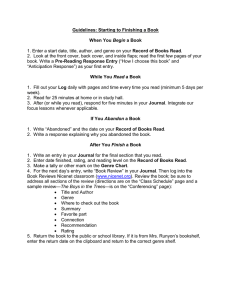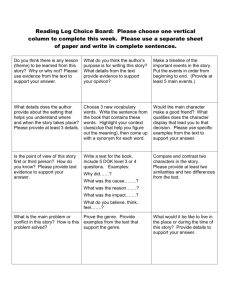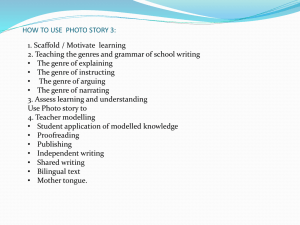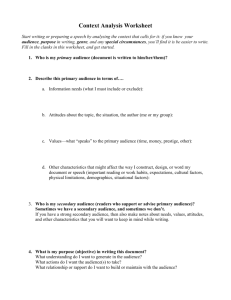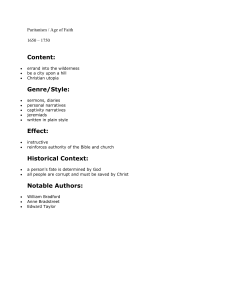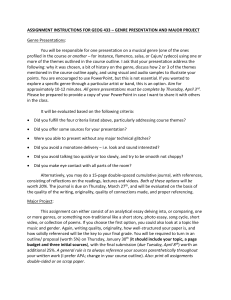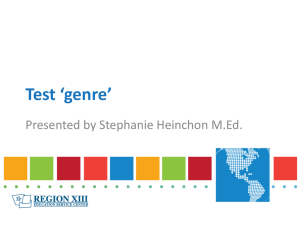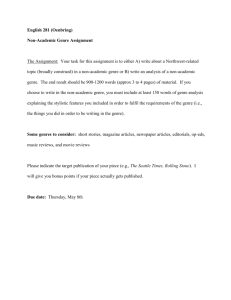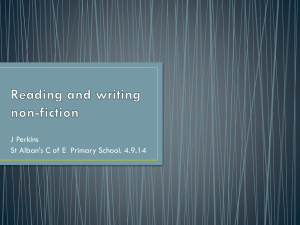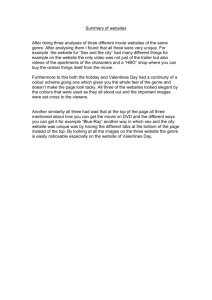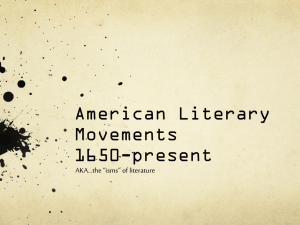Timeline of American Literature
advertisement
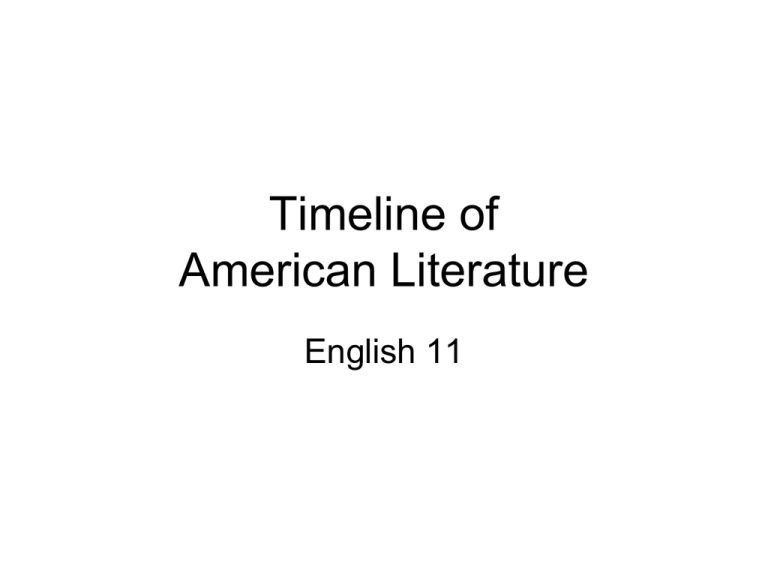
Timeline of American Literature English 11 Native American (?-1600) HISTORICAL CONTEXT: • Creation stories to explain nature • Ritualistic (healing, initiation, planting & harvesting, purification & hunting) GENRE/STYLE: • Communicated orally, not in writing • Myths, legends, chants EXAMPLES: • “How the World was Made” (Cheyenne) • “Origin Legend” (Navajo) Age of Faith (1607-1750) HISTORICAL CONTEXT: • Puritans & Pilgrims • Separated from the Anglican church of England • Religion dominates writing & lives • Work ethic: hard work & simple living GENRE/STYLE: • Sermons, diaries, letters, personal narratives, slave memoirs • Instructive, plain style, documentation MAJOR WRITERS: • Anne Bradstreet (1st published American poet), “To My Dear & Loving Husband” • Jonathan Edwards (Minister), “Sinners in the Hands of an Angry God” Age of Reason (1750-1800) HISTORICAL CONTEXT: • American Revolution; growth of patriotism • Democracy as a value/character • Reason replacing faith GENRE/STYLE: • Political pamphlets, essays, almanacs, travel writing, speeches, documents • Instructive writing in highly ornate language EXAMPLES: • Benjamin Franklin, Autobiography & Poor Richard’s Almanac • Thomas Jefferson, “Declaration of Independence” • Thomas Paine, “The American Crisis” Romanticism (1800-1855) HISTORICAL CONTEXT: • Expansion of book, magazine & newspaper publishing • Industrial Revolution • Abolitionist movement GENRE/STYLE: • Short stories, novels, poetry • Imagination over reason, intuition over fact; focused on the fantastic part of human experience & human feeling • Writing interpreted both on surface & in depth • Gothic literature (supernatural, characters both good & evil, dark & depressed settings) EXAMPLES: • Washington Irving, “Legend of Sleepy Hollow,” “Rip van Winkle” • Nathanial Hawthorne, The Scarlet Letter, “Young Goodman Brown” • Edgar Allen Poe, “The Raven,” “Fall of the House of Usher” Transcendentalism (1840-1855) Fit these notes under the “Romanticism” heading: • Transcendentalism: • Stressed the individual, intuition, nature, being self-reliant • EXAMPLES: • Ralph Waldo Emerson, “Nature” • Henry David Thoreau, Walden REALISM (1865-1915) HISTORICAL CONTEXT: • Civil War brings demand for realistic writing • People defined by “class” • Darwin’s influence: survival of the fittest GENRE/STYLE: • Realism: focus on lives of ordinary people • Naturalism: the universe is unpredictable, free will an illusion • Novels, short stories • Focus on social problems EXAMPLES: • Frederick Douglass, escaped slave, My Autobiography • Mark Twain, Adventures of Huckleberry Finn • Jack London, Call of the Wild, “To Build a Fire” MODERNISM (1915-1945) HISTORICAL CONTEXT: • Overwhelming changes in technology • WAR and mass destruction • Rise of youth culture GENRE/STYLE: • Stream of consciousness, interior monologue, other unique experimental styles EXAMPLES: • John Steinbeck, Grapes of Wrath • F. Scott Fitzgerald, The Great Gatsby CONTEMPORARY (1945-present) HISTORICAL CONTEXT: • Media-saturated culture • Post WW2 prosperity • Social protest • New millennium GENRE/STYLE: • Mix of fantasy & non-fiction • Anti-heroes • Women/ethnic writers • Graphic novels, experimental styles EXAMPLES: • J.D. Salinger, Catcher in the Rye • Maya Angelou, “I Know Why the Caged Bird Sings” • Tim O’Brien, The Things They Carried

